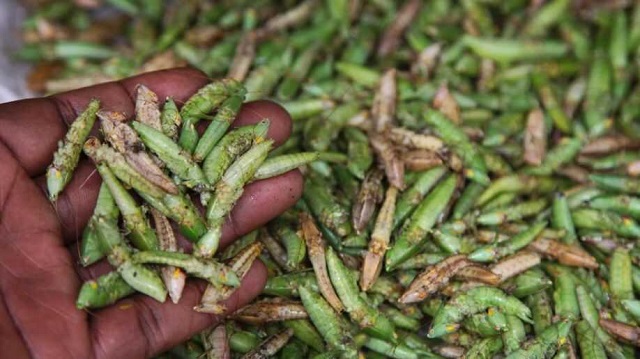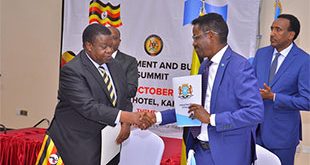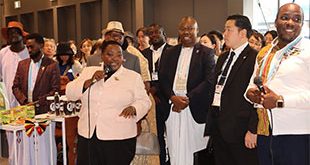
COMMENT | Gertrude Kamya Othieno | In Buganda, a kingdom within Uganda, nseenene, the cherished green grasshoppers, are more than just a seasonal snack. With November’s rains heralding their arrival, these insects have become a symbol that bridges both local tradition and global celebrations, as their appearance coincides with the approach of Christmas. They reappear in April, around Easter, a subtle reminder of the way local customs harmonise with the broader rhythms of the world.
Every November, Buganda’s families and friends gather in fields to catch nseenene as they swarm in from the skies. Nseenene is eaten casually, like chocolates or other treats, but for many, these insects bring more than just a festive flavour, they bring in crucial income ahead of the holiday season, aligning local culture with the economic demands of global festivities.
But for the people of Buganda, nseenene hold an even deeper meaning. As one of Buganda’s 52 clans, nseenene is part of a broader cultural tapestry where each clan has its own identity, role, and kinship. Members of the nseenene clan are traditionally forbidden from eating these insects, reflecting a cultural duty to preserve and protect their symbolic kin. In many ways, this prohibition has fostered a natural conservation ethic, with nseenene clan members serving as protectors, embodying Buganda’s deeply rooted respect for nature.
However, in an increasingly interconnected world, these customs may face unforeseen pressures. Trump’s policies, particularly his enthusiasm for resource extraction, may seem far removed from Buganda. Yet, his approach to environmental regulations sends ripples that can ultimately reach these shores. With nseenene highly sensitive to changes in their habitat, issues like pollution and climate shifts could impact their numbers, threatening a tradition that sustains both livelihoods and a cherished cultural practice.
Ironically, while some Africans admire Trump’s defiance and boldness, his policies may disrupt the very traditions and ecosystems that shape African identities. In Buganda, where nseenene serves as both a seasonal delight and a cultural link to the past, the idea of protecting traditions from external influence feels especially resonant.
As November brings the first flight of nseenene and Christmas nears, Buganda offers the world a reminder of the delicate balance between preserving cultural heritage and navigating global influences. In the fields where Buganda’s families come together to catch these small but significant insects, we see a powerful message: in a world where global politics increasingly affect local lives, protecting what we hold dear may be the strongest way to honour both our identity and our place in the world.
******
 Gertrude Kamya Othieno | Political Sociologist in Social Development (Alumna – London School of Economics/Political Science) | Email – gkothieno@gmail.com
Gertrude Kamya Othieno | Political Sociologist in Social Development (Alumna – London School of Economics/Political Science) | Email – gkothieno@gmail.com
 The Independent Uganda: You get the Truth we Pay the Price
The Independent Uganda: You get the Truth we Pay the Price




